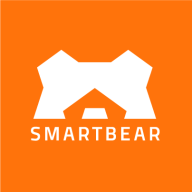

IBM API Connect and SwaggerHub serve overlapping use cases in the API management sector, but IBM API Connect seems to have the upper hand for large enterprises due to its integration capabilities and scalability, while SwaggerHub is preferred for its superior design and ease of use.
Features: IBM API Connect provides robust lifecycle API management, secure gateway services, and detailed analytics, making it ideal for enterprises managing APIs in large environments. SwaggerHub focuses on collaborative API design with auto-generated documentation and seamless integration with popular development environments, making it essential for teams prioritizing precision.
Room for Improvement: IBM API Connect could enhance user interface simplicity and streamline excessive configuration steps, improving onboarding for new users. Expanding its documentation resources and enhancing tools for real-time monitoring are also areas to consider. SwaggerHub, while excellent in API design, could improve its scalability for larger enterprise needs, expand integration options beyond popular development environments, and offer more robust analytics capabilities to enhance decision-making insights.
Ease of Deployment and Customer Service: IBM API Connect offers a flexible deployment model, supporting both cloud and on-premises setups, with extensive support for seamless integration. Its customer service is strong, ensuring smooth deployment processes. SwaggerHub's cloud-based approach simplifies deployment for agile teams, supported by efficient design-focused customer service channels.
Pricing and ROI: IBM API Connect involves a higher initial setup cost but offers substantial ROI through its comprehensive API management capabilities, particularly for enterprises with large-scale needs. SwaggerHub's more accessible pricing allows for quicker ROI through efficient design tools and faster deployment, appealing to budget-conscious organizations focused on rapid development.


IBM API Connect facilitates API management and integration in the financial sector. Companies use it to expose, secure, and manage APIs for banking, insurance, and fintech, deploying it on-premises, in the cloud, or as a hybrid solution.
IBM API Connect focuses on creating and monetizing APIs while enabling seamless transactions and integration with third-party services. It is vital for compliance with regulations and enhances external communication among institutions. With deployment options suitable for different environments, it supports centralized gateway management, robust security features, and comprehensive API lifecycle management. Users benefit from powerful analytics, user-friendly interfaces, and high performance with capabilities in message transformation and efficient monitoring.
What are the most important features?IBM API Connect is extensively implemented in the financial sector, enabling banking, insurance, and fintech services to manage APIs efficiently. Companies use it to ensure secure transactions, integration with third-party services, and compliance with regulatory standards. Its deployment flexibility accommodates different infrastructure needs, making it suitable for a wide range of financial applications.
SwaggerHub is an integrated API Development platform, built for teams, that brings the core capabilities of the Swagger framework to design, build, document and deploy APIs. SwaggerHub enables development teams to collaborate and coordinate the entire lifecycle of an API with the flexibility to integrate with the toolset of your choice.
We monitor all API Management reviews to prevent fraudulent reviews and keep review quality high. We do not post reviews by company employees or direct competitors. We validate each review for authenticity via cross-reference with LinkedIn, and personal follow-up with the reviewer when necessary.